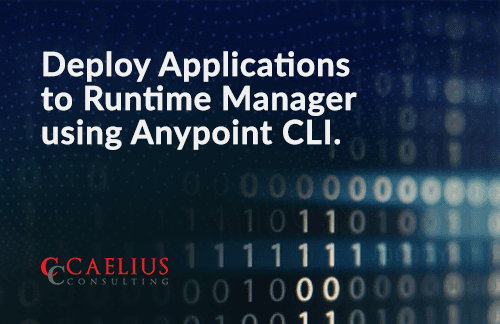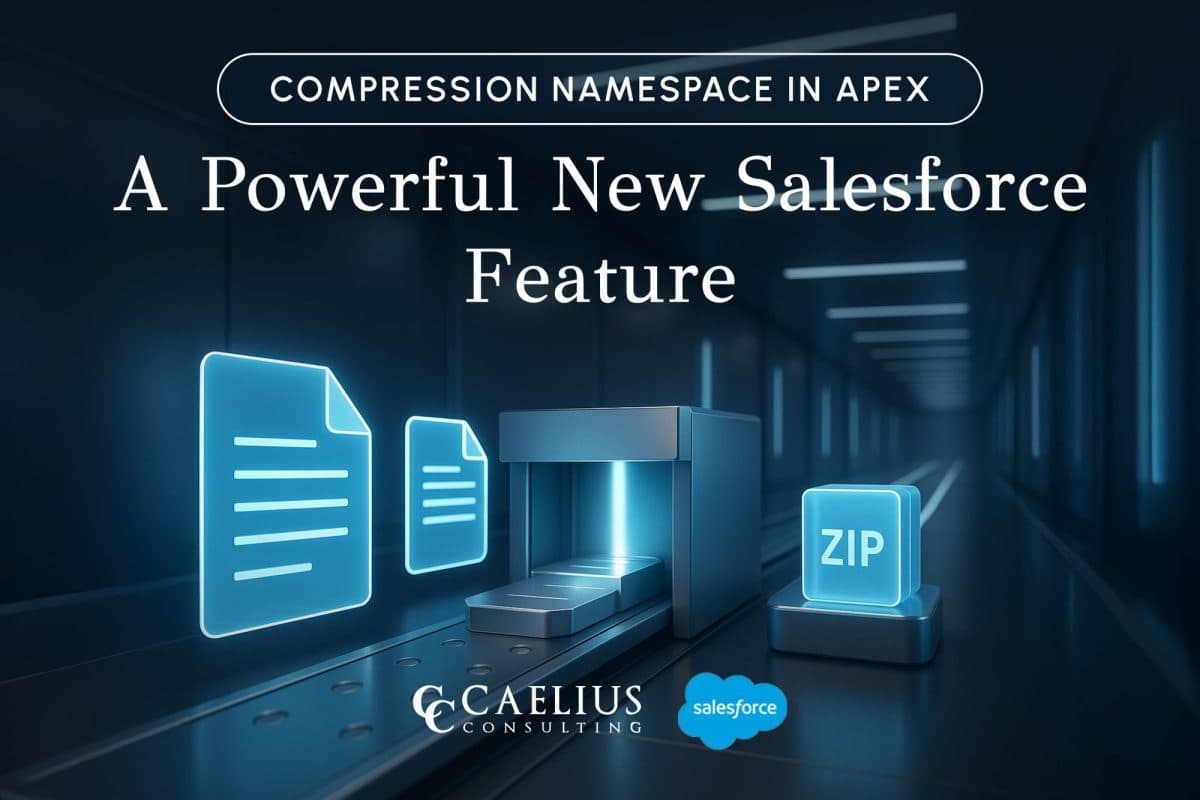Deploy Applications to Runtime Manager using Anypoint CLI

MuleSoft Anypoint Platform provides a command-line tool to work with the Anypoint platform and Anypoint Platform Private Cloud Edition. We can deploy applications to Runtime Manager using Anypoint CLI tool.
Setting up Anypoint CLI
- Download and install NodeJS, if not installed already
- Once installed, run the following command to install Anypoint CLI, npm install -g anypoint-cli@latest
Deploying Application
First, log in to the Anypoint Platform Account from CLI using the following command, anypoint-cli –username=”user”

If a production environment is available, CLI will connect to that; otherwise, it will connect to the Design environment. To switch the environment, use the below command
use environment Sandbox
![]()
Run the following command to deploy the Application to CloudHub.
runtime-mgr cloudhub-application deploy “app-name” “JAR or ZIP location”

Options available for deployment command
The deployment command lets us manage all the aspects of deployment via CloudHub. Following are the options provided-
- –runtime: Option to specify the Mule Runtime. Default is the latest one.
- –workers: Number of workers. 1 by default.
- –workerSize: Worker Size in vCores. 1 by default.
- –region: Region where Application will be deployed. us-east-2 is default.
- –property: Specify a property in key-value pair. E.g. –property “password=1234” or –property “password:1234”. To pass more than one, specify –property option for each one. The document specifies that only “:” can be used for key-value pairs but “=” also works.
- –propertiesFile: If provided, values from the file will overwrite all the properties, even those which are not in the file. Syntax: –propertiesFile “D:\file\prop.txt”
- –persistentQueues: Enable or disable persistent Queues. Value can be True or False. False by default.
- –persistentQueuesEncrypted: Enable or disable persistent queue encryption. Value can be True or False. False by default
- –staticIPsEnabled: Enable or disable static IPs. Value can be True or False. False by default
- –objectStoreV1: Enable or disable object store v1. Value can be True or False. False by default
- –autoRestart: Automatically restart app when not responding. Value can be True or
- –o/–output: Specifies the output format for deployment summary. Supported values are table, text and JSON. For interactive mode ‘table’ is default whereas for non-interactive, text is default.
- –f/–fields: Specifies the fields in the output. Multiple fields can be provided using comma separated values to limit the output. E.g -f “File Name,Region”
- –help: Outputs usage information

Managing the deployed Application
Below are a few CLI commands to manage deployed applications.
#To Stop Application
runtime-mgr cloudhub-application stop “app-name”
#To Start Application
runtime-mgr cloudhub-application start “app-name”
#To restart Application
runtime-mgr cloudhub-application restart “app-name”
#To Delete Application
runtime-mgr cloudhub-application delete “app-name”
#To Modify the existing Application. This command takes all the options as a deploy command.
runtime-mgr cloudhub-application modify “app-name” [options]
By following these steps developers can Deploy Applications to Runtime Manager using Anypoint CLI.
Find more MuleSoft Anypoint solutions at Caelius Consulting Resource Center.
Recent Blogs

Designing for Reality: Integrating 837 Claims When X12 Meets Production
Designing 837 Claim Integration for Real-World Healthcare Systems When it comes to 837 claim integration, most architects assume the X12 specification guarantees predictability. On paper, the 837 Professional, Institutional, and Dental transactions look clean and orderly. In production? Not even close. Real-world 837 files behave differently across trading partners. Loops appear conditionally. Repeatable segments shift… Continue reading Designing for Reality: Integrating 837 Claims When X12 Meets Production
Designing for Reality: Integrating 837 Claims When X12 Meets Production
Designing 837 Claim Integration for Real-World Healthcare Systems When it comes to 837 claim integration, most architects assume the X12 specification guarantees predictability. On paper, the 837 Professional, Institutional, and Dental transactions look clean and orderly. In production? Not even close. Real-world 837 files behave differently across trading partners. Loops appear conditionally. Repeatable segments shift… Continue reading Designing for Reality: Integrating 837 Claims When X12 Meets Production

AI-Driven PDF Parsing in Salesforce
Introduction For the current digital ecosystem, data is an important aspect for decision-making. Yet, for many organizations, a significant portion of this valuable data remains locked away in unstructured formats. Organizations handle thousands of PDF documents daily — ranging from contracts and invoices to lab reports, quotations, and service agreements. Traditionally, extracting structured data from… Continue reading AI-Driven PDF Parsing in Salesforce
AI-Driven PDF Parsing in Salesforce
Introduction For the current digital ecosystem, data is an important aspect for decision-making. Yet, for many organizations, a significant portion of this valuable data remains locked away in unstructured formats. Organizations handle thousands of PDF documents daily — ranging from contracts and invoices to lab reports, quotations, and service agreements. Traditionally, extracting structured data from… Continue reading AI-Driven PDF Parsing in Salesforce

Compression Namespace in Apex: A Powerful New Salesforce Feature
Introduction Working with documents inside Salesforce has always challenged developers because of the platform’s multitenant constraints. Previously, packaging and sending files in a compact form required external services, like an AWS Lambda function, that retrieved files via API and then compressed them. With the introduction of the Compression Namespace and the powerful pre-defined Apex functions,… Continue reading Compression Namespace in Apex: A Powerful New Salesforce Feature
Compression Namespace in Apex: A Powerful New Salesforce Feature
Introduction Working with documents inside Salesforce has always challenged developers because of the platform’s multitenant constraints. Previously, packaging and sending files in a compact form required external services, like an AWS Lambda function, that retrieved files via API and then compressed them. With the introduction of the Compression Namespace and the powerful pre-defined Apex functions,… Continue reading Compression Namespace in Apex: A Powerful New Salesforce Feature

Boost LWC Performance with Debouncing
Introduction Lightning Web Components (LWC) is a modern framework for building fast and dynamic user interfaces on the Salesforce platform. However, one common challenge in web development, including LWC, is efficiently handling user input, especially when dealing with rapid or repetitive events, such as typing in a search field. This is where debouncing becomes an… Continue reading Boost LWC Performance with Debouncing
Boost LWC Performance with Debouncing
Introduction Lightning Web Components (LWC) is a modern framework for building fast and dynamic user interfaces on the Salesforce platform. However, one common challenge in web development, including LWC, is efficiently handling user input, especially when dealing with rapid or repetitive events, such as typing in a search field. This is where debouncing becomes an… Continue reading Boost LWC Performance with Debouncing